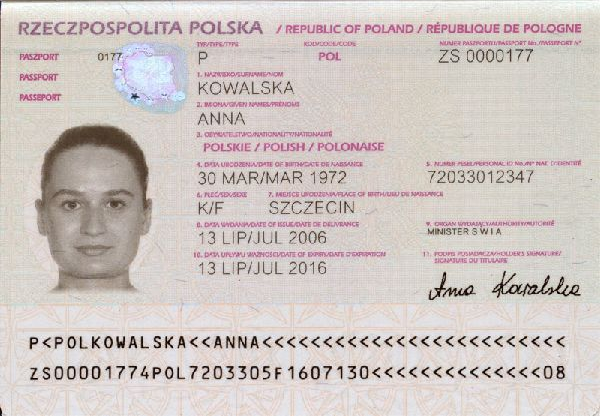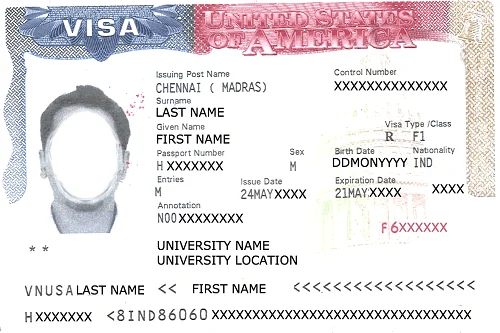You are required by law to keep all of your immigration documentation up to date while you are a student. This could involve collaborating with ISSP ahead of time to anticipate changes or requesting updated papers from the appropriate authority. Make sure to keep copies of all previous immigration documents.
When you apply for a new immigration status, many organizations will ask for all previously issued immigration documents. This is especially true when it comes to work statuses (like H-1B) and Permanent Residency. Make sure you make copies of everything yourself because ISSP will not be able to offer copies.
To maintain your F-1 status, keep the following documents up to date:

I-20
Your legal presence in the U.S. is established by the I-20, which must accurately reflect your program and biographical information. Any changes to the information on this document must be reported to ISSP, including:
Program Start/End Dates
If you will not finish your program by the end date on the document, contact ISSP about an extension before the date listed. We cannot extend an I-20 after the end date. Visit the program extension page to learn how to extend your I-20/DS-2019. You must also shorten your record if you finish your program earlier than expected.
Changes to Biographical Information
If you have a legal name change or have changed citizenship, you must submit a copy of the new passport showing your name, so that we can change it on your I-20. We can only accept a passport to make these changes. The changes we make will apply to your I-20 only. We cannot make any changes to your name as it is displayed on your academic or Registrar record. If you would like to change your name on your academic record, you will need to follow up with the Registrar/your department separately.
If your legal name or citizenship has changed, you must submit a copy of your new passport so that we can update your I-20. To make these changes, we can only accept a passport. Only your I-20 will be affected by the changes we make. We cannot change your name as it appears on your academic record. You will need to contact the Registrar/your department separately if you want to modify your name on your academic record.
Changes to Academic Program or Degree Level
You must inform ISSP in advance if you plan to change academic programs or degree levels.
Grace Period Following your I-20
F-1 students have a 60-day grace period after their I-20 end date to either leave the U.S., transfer their SEVIS record to another institution, or move to another status once their program is over. The grace period will be applied automatically and will not appear on your I-20 or any other document.
Lost/Damaged I-20
You can request a reprint of your document in iGlobal if you lose your I-20.
Admission Stamp & Electronic I-94
When you arrive at the port of entry, the officer will stamp your passport with an admission stamp and then write the visa status (F-1) and the date of your entry’s expiration. The expiration date for students in F-1 status is indicated by the letters “D/S,” which stands for “duration of status.” This means your entry will remain valid as long as your status remains valid. Make sure your stamp is correct and request that your stamp is updated if it indicates an inaccurate status or a specific date instead of D/S. Please notify ISSP the next working day if this is not possible.
Getting a Copy of your I-94 Record
An electronic record of your entrance, known as the I-94, will be created when you enter the U.S. Make a copy of your I-94 on the CBP I-94 look-up website.
Passport or Travel Document

You must keep your passport valid at all times, since it must have at least 6 months of remaining validity. It is not necessary for your passport to be valid for the entire period of your academic program. If your passport will expire before the completion of your program, you will need to apply for a new passport while still enrolled. When it comes to renewing your passport, be sure to plan ahead. Many students can renew their passports at their home country’s consulate or embassy in the U. S. For additional information, contact your embassy.
Getting a New Passport – Valid Visa in an Old Passport
If you need a new passport but the old one still has a valid visa, keep the old passport and travel with both the new and old passports. You can use your valid visa in your expired passport along with your updated passport as long as 1) they are both in the same category (‘regular’, ‘diplomatic’, etc.) and 2) no major changes (e.g. name/biographical changes) have occurred. The consular officer will usually glue or staple your old and new passports together so that you can continue to use your visa along with your new passport. You will need to apply for a new visa if your current one has expired or is a different type.
You can see more information about this on the U.S. State Department FAQ page.
Passport Updates and Passports Renewals
You may need to renew your passport during your studies. If so, please provide an update in iGlobal by completing a Personal Information e-form. Other entities, such as your employer, may require updates. Always follow up with your employer or others if necessary.
Entry Visa

To enter the U.S., an entry visa is placed in your passport at a U.S. consulate. Because your visa is merely an entry document and has no bearing on your status, it may expire while you are in the U.S. If you travel internationally, you will need a valid visa to re-enter the U.S., and you can only renew your visa outside of the U.S. Canadian citizens do not require entry visas to enter the U.S. For additional information on visas, visit our travel page.
Visa Validity and Arrest Records
It’s possible that your visa has been revoked without your knowledge if you’ve been arrested or convicted of a crime in the U.S., such as driving under the influence of alcohol or while intoxicated. If you find yourself in this situation, check the validity of your visa with the embassy or consulate where you received it. If it has been revoked or canceled, contact ISSP. We can help you identify an immigration attorney if the need arises.
